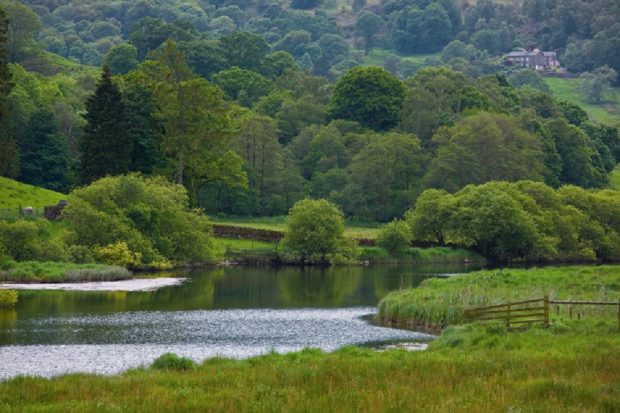
The Rivers Trust has today launched its State of Our Rivers report aiming to allow the English public understand and explore the health of their rivers on a national and local scale.
Environment Minister Rebecca Pow and Environment Agency Director John Leyland attended the launch panel to discuss the ways in which the Government and regulators can work together with NGOs, water companies, agricultural businesses and others in the water sector to safeguard and improve the health of our rivers.
The Rivers Trust report highlights that agricultural activities such as poor nutrient management are having a negative impact on rivers, with the water sector responsible for the widespread impact of discharging partially treated or diluted sewage effluent on river health.
Through its work on the Storm Overflows Taskforce, the Government has made it clear to water companies they must make improvements to their environmental performance by reducing sewage discharges from storm overflows. The taskforce has led to £144m of new, additional investment on storm overflows on top of the £3 billion investment already committed by water companies to improve storm overflows in the current 5-year period.
New measures in the Environment Bill will also require water companies to monitor the water quality impacts of their sewage discharges and publish near real-time information on when their storm overflows operate. This will drive water companies to reduce sewage discharges that do the most harm, to better protect our rivers and public health.
Our Catchment Sensitive Farming partnership, one of the key ways to tackle agricultural pollution, was recently granted an extra £17m to cover 100% of English farmed areas by March 2023. Catchment Sensitive Farming has been hugely successful in giving farmers practical advice tailored to their own land and grants to support the investment in infrastructure that protects watercourses. Defra also recently made budget available to the Environment Agency for 50 extra inspectors to be recruited to visit farms posing a risk of water pollution and ensure action is taken.
We also recently updated our guidance to the Environment Agency for the next cycle of River Basin Management Plans (RBMPs). RBMPs establish the environmental objectives for our rivers and set out the steps required to meet them and form an effective vehicle to achieve the ambitions for our water environment in the Government’s 25 Year Environment Plan.
While the Government is taking urgent action to improve the ecological health of our rivers, the report highlights the need for joined-up action at scale between the water sector and farming industry, households, and the government.
Environment Minister Rebecca Pow said:
Protecting our rivers and tackling the pollution that damages them is an urgent priority and I would like to thank The Rivers Trust for inviting me today to discuss this critical issue.
“Our Environment Bill will set new clear targets to support recovery of the water environment and we recently doubled funding for the Catchment Sensitive Farming programme to tackle farming pollution. Our Storm Overflows Taskforce is also working to drive progress, alongside £144m of new, additional investment from water companies.
“Yesterday we published guidance to the Environment Agency for its work on the next set of River Basin Management Plans, setting out our priorities for tackling biodiversity loss, protecting chalk streams and maintaining a resilient water supply as we adapt to the impacts of climate change.
“We will continue this work at pace and I look forward to working with regulators, businesses, local authorities, and communities to drive the progress that we all want to see.
Environment Agency Director John Leyland said:
Over the last twenty-five years there has been huge progress in enhancing the water environment but recently this has plateaued, reflecting the scale and complexity of the environmental challenges in the face of the climate and nature crises.
“Transparency through democratising data is key to raising awareness and holding polluters to account, which is why I am pleased that more people will be able to access this information.
“We welcome this innovative and interactive report which rightly recognises everyone has a role to play – the regulators, the water companies, farmers, NGOs and indeed every single person who uses water in this country. As a regulator we will work with all those who want to be part of the solution and take tough action against those who don’t.
2 comments
Comment by John W. Baxter posted on
Plenty of talk, but where is the action?.....water companies can invest all they want in combined sewer outfalls,but maybe they should be compelled to upgrade treatment capacity to improve what they do discharge to the watercourses......then maybe all this talk of pollution would not be batted over to farming. As we know, the water companies are some of the largest landowners in the country, but if the water catchment lies within the National Parks, the Environment Agency will have nothing to do with it as we found when we proposed slowing the flow in Pickering Beck to manage the crest flows in high rainfall events. Getting rid of silo thinking does not create solutions but is a start.
Comment by Mark Goodger posted on
All sounds well and good, but the revised RBMPs are supposed to come into force by December 2021 and the Environment Agency are supposed (to have) provided a minimum of 6 months consultation period on the revised plans. Your guidance to them is long overdue and means that both you and they are failing on your legal obligations.
The 25 year plan continues to come in for criticism for "watering down" environmental protection as opposed to improving it, which is why there were so many amendments voted through by The Lords.